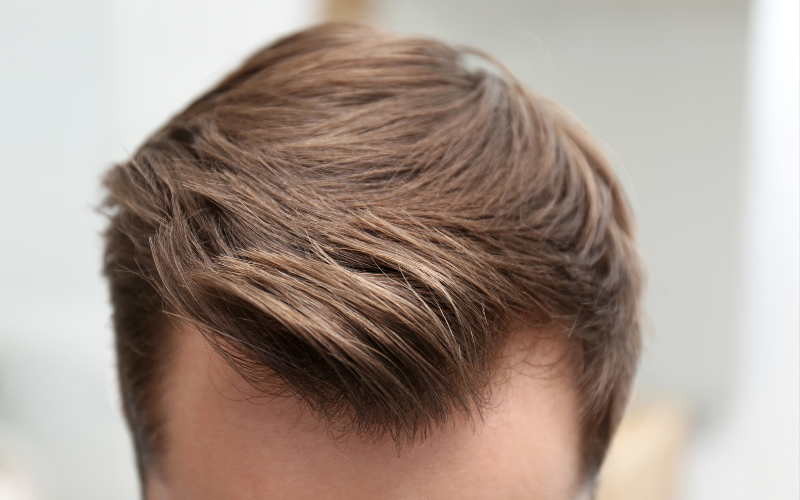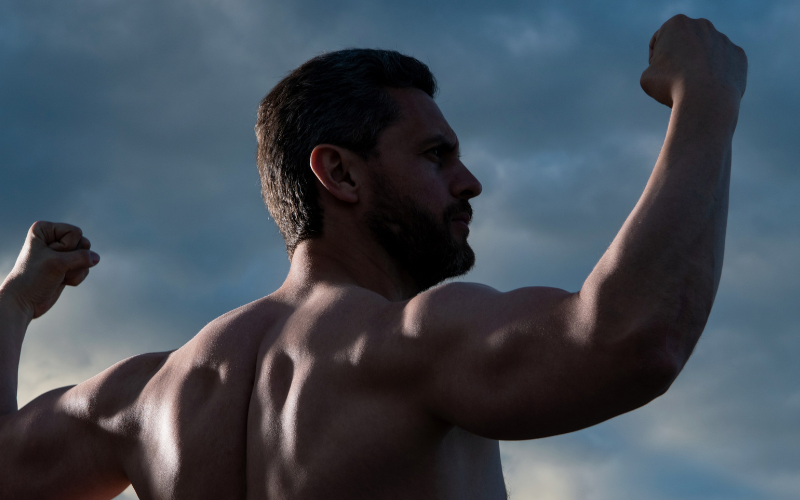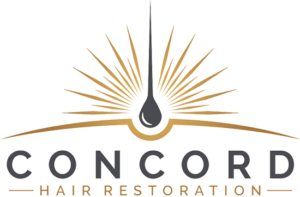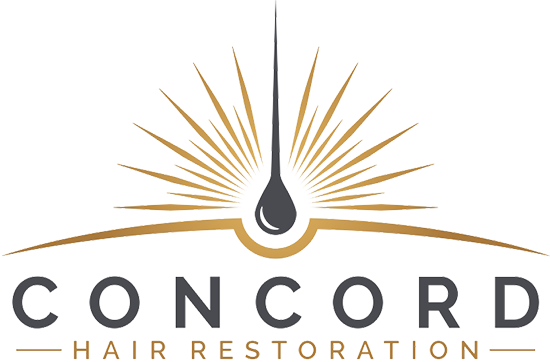At Concord Hair Restoration, we understand that for athletes, confidence is just as important as peak physical conditioning. Hair loss can chip away at that self-assurance, but what if we told you there’s a way to regain a full head of hair and your competitive edge? Here, we’ll guide you, fellow athlete, through the world of hair transplants, addressing your unique concerns and helping you navigate the process smoothly.
Understanding Hair Transplants: Your Journey to a Fuller Head of Hair
What is a Hair Transplant?
A hair transplant is a minimally invasive surgical procedure that redistributes your own hair follicles. Healthy follicles are extracted from a donor area, typically the back or sides of the scalp, and meticulously transplanted to the thinning or balding areas. This allows for natural-looking, permanent hair growth in the recipient zone.
Types of Hair Transplant Procedures:
- Follicular Unit Extraction (FUE): This modern technique involves extracting individual follicles one at a time, minimizing scarring.
- Follicular Unit Transplantation (FUT): A strip of scalp containing healthy hair follicles is removed and dissected into individual grafts for transplantation.
The Athlete’s Advantage: Why Hair Transplants Make Sense
Imagine stepping onto the field or court feeling completely confident, not just in your physical abilities but also in your appearance. Hair transplants can boost your self-esteem and project a powerful image, allowing you to focus on what truly matters – achieving your athletic goals.
Considerations for Athletes: Balancing Recovery with Training
The Physical Demands of Your Sport and How They Impact Recovery
The intensity of your sport plays a crucial role in planning your hair transplant. High-impact activities can disrupt the healing process and potentially affect the success of the transplant. Let’s delve into key aspects to consider:
- Timing the Procedure: Ideally, schedule your transplant during the off-season. This allows ample recovery time before the next competition season kicks in.
- Long-Term Maintenance: Remember, hair transplants are a long-term commitment. Regular follow-up appointments and meticulous adherence to aftercare instructions are crucial for optimal results.
Pre-Procedure Planning: Setting the Stage for Success
Choosing the Right Surgeon: Your Trusted Partner
Finding a skilled and experienced surgeon is paramount. Look for someone who specializes in hair transplants, understands the unique needs of athletes, and boasts a proven track record of successful outcomes.
Pre-Procedure Consultations and Health Assessments:
During in-depth consultations with your surgeon, you’ll discuss your goals, expectations, and medical history. A comprehensive health assessment ensures you’re a suitable candidate for the procedure.
Setting Realistic Expectations: What to Expect
Understanding the limitations and potential outcomes of hair transplants is key. Discussing realistic expectations with your surgeon prepares you mentally and emotionally for the journey ahead.
The Hair Transplant Procedure: A Step-by-Step Look
Preparation:
- Your scalp will be thoroughly cleansed, and local anesthesia will be administered to minimize discomfort.
Extraction:
- Depending on the technique chosen, either individual follicles (FUE) or a strip of scalp containing follicles (FUT) will be extracted from the donor area.
Transplantation:
- With meticulous precision, the extracted follicles are meticulously placed in the recipient area to achieve a natural-looking hairline.
Post-Procedure Care:
- Your surgeon will provide detailed instructions for immediate aftercare, including medications and wound care.
Duration and What to Expect During Surgery:
The procedure can take several hours, depending on the extent of the transplant. While you’ll typically remain awake, you may feel some mild discomfort.

Immediate Post-Procedure Care: Essential Steps for Optimal Healing
Following your surgeon’s aftercare instructions meticulously is crucial for successful healing. This may involve:
- Restricting strenuous activities for the first week.
- Maintaining gentle scalp hygiene.
- Avoiding excessive sun exposure and wearing protective headgear if needed.
Recovery Period: Charting Your Course Back to Peak Performance
Typical Recovery Timeline:
While recovery times vary, here’s a general timeframe for athletes:
- First Week: Focus on rest and minimal physical activity.
- Second Week: Gradually return to light activities like walking or swimming.
- One Month: Resume most sports with caution, avoiding high-contact activities.
Managing Physical Activity Post-Transplant:
Listen to your body!
- Begin with low-impact exercises and gradually increase intensity as your scalp heals.
- Avoid contact sports and activities that cause excessive sweating for at least a month.
Tips for a Smooth Recovery:
- Follow all post-procedure instructions diligently.
- Maintain a healthy diet rich in essential nutrients for optimal healing.
- Stay hydrated by drinking
How Hair Transplants Affect Athletic Performance
The hair transplant itself doesn’t hinder your athletic performance. However, the initial recovery period may necessitate temporary adjustments to your training routine. Don’t worry, this is a temporary setback on your path to achieving a fuller head of hair and peak performance.
Strategies to Minimize Impact During Recovery:
- Adjust Training: Focus on lower body workouts or exercises that don’t require strenuous head movements in the first few weeks.
- Rest: Prioritize adequate sleep and allow your body to heal without overexertion.
- Monitor Progress: Schedule regular follow-up appointments with your surgeon to monitor your progress and address any concerns.
Balancing Recovery and Training: Finding Your Rhythm
Striking a balance between rest and maintaining fitness levels is crucial. Here are some tips:
- Consult Your Coach and Medical Team: Work with them to create a customized training plan that accommodates your recovery needs.
- Listen to Your Body: Don’t push yourself too hard. Gradually increase intensity as your scalp heals and you feel comfortable.
Maintaining Results While Active: Keeping Your Crown Looking Its Best
Protecting the Transplanted Hair During Sports Activities
Sweat is a natural part of being an athlete, but excessive sweating can irritate the scalp during the initial healing phase. Here’s how to protect your transplanted hair:
- Use Sweatbands, Helmets, or Hats: Choose breathable headwear that absorbs sweat and minimizes friction against the scalp.
- Avoid Excessive Friction and Trauma: Steer clear of activities that could cause undue stress on the transplanted area, such as rough head-to-head contact in sports.
Long-Term Care and Follow-up Appointments:
Regular check-ups with your surgeon are essential for the long-term success of your hair transplant. They can monitor your progress, address any concerns, and offer guidance on maintaining optimal scalp health.
Nutrition and Lifestyle Tips for Hair Health:
What you put in your body directly impacts your hair health. Here are some lifestyle practices to promote healthy hair growth:
- Diet: Eat a balanced diet rich in vitamins, minerals, and protein, all essential for hair growth.
- Hydration: Drink plenty of water throughout the day to keep your scalp and hair follicles hydrated.
- Stress Management: Chronic stress can contribute to hair loss. Practice relaxation techniques like meditation or yoga to manage stress levels.

Psychological Benefits: The Confidence Boost of Hair Restoration
Boosting Confidence Through Hair Restoration
Let’s face it, hair loss can take a toll on your self-esteem. A fuller head of hair can significantly enhance your confidence, not just in your appearance but also in your athletic abilities. This newfound confidence can translate into a competitive edge, allowing you to perform at your peak.
Case Studies of Athletes Who Underwent Hair Transplants
Many athletes have successfully undergone hair transplants, experiencing a positive impact on their self-image and performance. Their stories serve as inspiration for athletes considering the procedure.
The Psychological Edge in Competitive Sports
Confidence plays a crucial role in sports. Feeling good about your appearance can translate into a winning mindset. Hair restoration can provide that mental boost needed to excel on the field or court.
Common Concerns and Myths: Addressing Your Questions
Debunking Myths About Hair Transplants for Athletes:
- Myth: Hair transplants leave visible scars.
- Fact: Modern techniques like FUE minimize scarring, leaving virtually undetectable marks.
- Myth: Transplanted hair falls out.
- Fact: When properly performed by a skilled surgeon, transplanted hair is permanent and will grow naturally.
Addressing Common Concerns Such as Scarring and Hair Loss Recurrence
It’s natural to have concerns about scarring and the possibility of hair loss after a transplant. However, advanced techniques significantly reduce these risks. Here’s how:
- Minimally Invasive Techniques: FUE minimizes scarring compared to traditional strip harvesting methods.
- Proper Care: Following a diligent post-operative care routine promotes optimal healing and reduces the risk of complications.
- Genetic Evaluation: During consultations, your surgeon will assess your hair loss pattern to determine if you’re a good candidate for a transplant and minimize the risk of future hair loss.
Success Stories: Finding Inspiration in the Champions Who’ve Been There
Notable Athletes Who Have Had Hair Transplants
Several well-known athletes have undergone hair transplants, paving the way for others. Their stories showcase the positive outcomes achievable with this procedure.
Their Experiences and Outcomes:
These athletes often report feeling more confident and achieving even greater success in their respective sports following their hair transplants.
Inspiring Quotes and Testimonials:
By understanding the process, planning effectively, and prioritizing proper recovery, athletes can reap the benefits of hair transplants without compromising their performance. Here’s a quick recap:
- Planning is Key: Choose the right surgeon during the off-season and discuss your athletic lifestyle during consultations.
- Recovery is Crucial: Rest and follow aftercare instructions meticulously during the initial healing phase.
- Long-Term Maintenance Matters: Regular check-ups and proper hair care practices ensure lasting results.
Hair transplants can be a transformative experience for athletes, not only restoring a fuller head of hair but also boosting confidence and overall well-being. With the right approach, you can achieve peak performance both physically and mentally, stepping onto the field or court feeling like the champion you truly are.
FAQs: Answering Your Lingering Questions
How long should I wait before resuming sports?
The wait time depends on the procedure and individual recovery. Generally, athletes can resume light activities within two weeks and most sports cautiously within a month. Consult your surgeon for personalized guidance.
Will wearing helmets affect my transplanted hair?
Wearing helmets is safe, but wait until your scalp has fully healed (around 4-6 weeks) to avoid irritation. Choose breathable helmets and wear a protective cap or liner underneath for added comfort.
Are there any sports I should avoid post-transplant?
High-contact sports like boxing or wrestling should be avoided for at least a month to minimize the risk of injury to the transplanted area.
How can I protect my scalp during recovery?
- Minimize sun exposure: Wear hats with UV protection when outdoors.
- Avoid harsh chemicals: Use gentle shampoos and avoid harsh styling products.
- Maintain good hygiene: Keep your scalp clean to prevent infection.
What are the chances of needing a second procedure?
While most transplants are successful, some individuals may require touch-up sessions for optimal density. Discuss your desired outcome with your surgeon during consultations.
Reclaim Your Confidence: FUE Hair Transplants for Athletes in Los Angeles
Concord Hair Restoration: Your Trusted Partner for Hair Restoration in Los Angeles (LA)
Hair loss can affect athletes beyond just aesthetics. At Concord Hair Restoration, we understand the crucial role confidence plays on the field and in life. That’s why we offer FUE hair transplants, a transformative procedure designed to empower athletes in Los Angeles to rediscover their self-assurance and achieve a revitalized image.
Looking for Hair Transplants, Hair Transplant Surgery, Hair Surgery, Hair Implants, or the Best Hair Replacement in Los Angeles?
Look no further! Concord Hair Restoration is your one-stop solution for achieving a fuller head of hair and regaining the confidence you deserve.
Why Choose FUE Hair Transplants at Concord Hair Restoration?
- Proven Results in Los Angeles: We boast a remarkable track record of success stories using cutting-edge FUE techniques.
- Minimally Invasive: FUE is a scar-minimizing procedure, ideal for athletes with active lifestyles.
- Natural-Looking Hair: Our expertise ensures transplanted hair looks natural and complements your existing hair.
- Convenient Location: Located conveniently in Los Angeles, we offer consultations and hair restoration procedures for athletes and individuals seeking the best hair replacement options in LA.

Ready to Take the First Step? Schedule a Consultation Today!
Schedule a consultation with our hair restoration specialists in Los Angeles. We’ll discuss your goals, answer any questions you have about hair transplants, hair transplant surgery, hair surgery, hair implants, or hair replacement in Los Angeles, and create a personalized plan to help you achieve a fuller head of hair and regain the confidence you deserve.
Visit us at: 16661 Ventura Blvd., Suite #824, Encino, CA 91436
Contact: (818) 800-2002
Embrace the Champion Within. Schedule Your Consultation Today!

